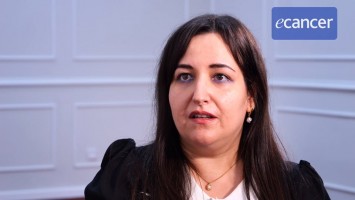We work some with big data, mostly we work with large international organisations. We do strategy, coalition building, new programme development; we help organisations get into new areas of global health. So we’ve been working in NCDs for about seven years with an emphasis on women’s cancers.
Before they became popular.
At the time there were a number of researchers working on it but it was this moment of pass off between the research community and the implementation community. One of our specialities is working in advocacy so we really saw that we needed to be pushing that forward as quickly as possible. So we’ve been working on the access to HPV vaccine and expanding access to cervical screening and preventative treatment and increasingly on breast cancer and other issues that particularly affect women in non-communicable diseases. We work with large international organisations, so the American Cancer Society, UICC, CR UK is one of our close supporters. We work with organisations that work traditionally in global health like Family Health International or MSH or PSI and we help those organisations rethink how they’re applying their skills and their capacities in global health to what we like to call emerging areas of global health but actually have been staring us in the face for some time, which is the non-communicable diseases.
The hot challenge is the burning challenge, the challenge that we’re all sitting on is really figuring out what to do when the rubber hits the road. The NCD community has been based in advocacy, either patient advocacy in developed countries or in getting the issue of non-communicable diseases or cancer on the international agenda. Now these are not organisations in themselves who have the capacity to deliver programmes or the capacity to deliver services. So really working with, and you see many people, clinicians, nurses, people who can actually deliver these services, that’s our real challenge and figuring out how to mobilise existing health infrastructures to deliver the services and the programmes needed, that’s really what we need to do. We know what we need to do in some cases, the challenge is really doing it at this point.
How are we going to fund this?
That’s another challenge that we’re working on currently, particularly in the area of cervical cancer. One of the things we really need to understand is what it’s going to take to do. The American Cancer Society just did a really interesting project to come up with a cost of action around cervical cancer. We need to understand the same for other issues in women’s cancers and in cancer more broadly. Until we have a numbers figure we can’t really advocate for moving beyond what we have now. But what we really need, I think, is that NCDs are not going to play the same way that we’ve seen HIV or malaria, tuberculosis or maternal health move forward in global health. These are issues that particularly will fall on governments and on families. The pressure that these diseases already have on families is catastrophic. So we need to look to a totally different strategy to fund NCDs. If we wait around and think that we’re going to see the same thing happen, whether HIV or maternal mortality, and hope that we can do the right things, pull the right switches or turn on the right lights and see this happen in the same way, I just don’t think that’s realistic both in terms of global financing and in terms of really the burden and the weight of these diseases.
There is causality, there are opportunities for synergy whether across NCDs or with existing health programmes that we see ongoing today. There’s an organisation that we work closely with called the Task Force for NCDs and Women’s Health. We’re looking specifically at how we can pinpoint opportunities for integration with existing programmes. We can’t rely on that entirely.
We have worked on, as you mentioned, the opportunities to use simple medicines like aspirin as a prevention tool. Our work has been more on the emerging technologies, whether in maternal and neonatal health or in cancer prevention through vaccines. But there’s a lot you can do with very little.
But aspirin and Tamoxifen will actually prevent a lot of cancers and so might statins.
That’s very true; that’s very true. And those are important things that as a community we need to start looking at and figuring out how we can work together on. Absolutely.
What’s burning for me in this meeting is the question of translation. So when you come to these meetings it’s exciting to see your colleagues, it’s exciting to feel the energy. Everyone is in agreement, there’s a momentum. We need to move beyond, so how do we engage people in the governments of the countries in which we are working? How do we engage people who don’t necessarily care about cancer or who have been affected personally but don’t yet understand how they can play a role? So I think the question, as you mentioned yesterday in the WHO session, the question is translation, the question is uptake and the question is scale. And these meetings are super important in terms of giving people clarity and energy but they are not enough. They’re really just the beginning of the work that needs to be done afterwards.








